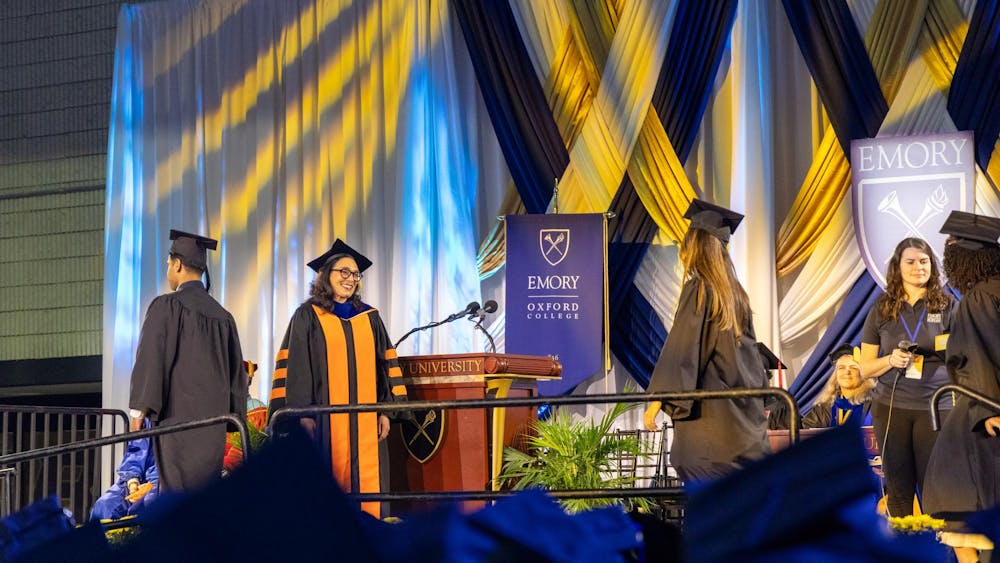The 51st legislature of the Student Government Association (SGA) convened for its first meeting Monday night to vote on bills to amend the Finance Code, define Executive Agencies (EA), and update structure and to elect a new speaker of the legislature. All three bills passed unanimously with six votes.
Outgoing Vice President of Finance Jason Yu (17B) and outgoing Assistant Vice President of Finance Javi Reyes (18C) introduced Bill 51sl01, which proposes amending the language of the Finance Code to reflect SGA’s split into autonomous graduate and undergraduate bodies. The proposed amendments would remove the graduate divisions from the Code and transfer the undergraduate shared contingency account powers entirely to the SGA Finance Committee, which will administer the account and allocate supplemental funding to student organizations.
According to the bill, the Finance Committee will include all EA and undergraduate divisional treasurers, the SGA vice president of finance and SGA legislators assigned to the committee, which will discuss and determine the allocation of SGA’s funds, which total approximately $1.4 million, according to the Finance Code. The amended Finance Code would give all EAs one collective vote on the new Finance Committee. The old voting method is “no longer sustainable,” because only three legislators were allowed to be voting members of the Finance Committee, so EA treasurers would be able to easily outnumber them, Yu said.
The bill also divided the EA travel cap into transportation and lodging categories, each set at $92 per semester per student, the current Student Activity Fee (SAF).
The split of the travel cap also aims to “give divisions more autonomy and control over how divisions decide to allocate their caps,” Yu said. “Divisions can still decide to enforce caps of their own, but from an SGA or top-level perspective, we don’t want to make that decision for them.”
The current SAF is based on obsolete values from the 2011-12 academic year, and will increase to $95 per semester starting in the 2019-20 fiscal year. The change is due to the Cost of Living Adjustment (COLA) per the Finance Code, Yu said.
Any alterations to the SGA Finance Code must be passed by SGA in two consecutive sessions by a majority vote of quorum or a two-thirds vote of legislators present, whichever is greater, according to the SGA Finance Code Part VII. This was the group’s first vote on the issue and it passed unanimously.
Bill 50sl30 called for the creation of the EA designation and charters to replace the “University Wide Organization (UWO)” designation outlined in Article 3 of the SGA Chartering Bylaws, and was submitted by outgoing SGA Attorney General Christopher Lam (17B) and was passed during the March 27 legislative session. However, any amendments to the Chartering Bylaws requires SGA to pass the bill in two consecutive sessions, according to the Chartering Bylaws of SGA.
The bill proposed the terminological change as SGA and GSGA now share control of UWOs under the Joint Governance Committee (JGC), which has yet to create a contemporary definition of the term.
SGA also passed Bill 51sl02, which updates the language of Bill 50sl30. Bill 50sl30 had failed to incorporate the legislative restructure,namelythat the SPC president no longer automatically serves as SGA vice president of programming. Bill 51sl02 reflected the correct, updated structure.
The legislature elected SGA Senior Representative William Palmer (18C) as the new speaker of the legislature with a unanimous six-count vote. The position is open to any member of the legislature according to the SGA Constitution and Palmer ran uncontested. He stated that one of his goals was to guide the SGA in an efficient manner.
“I want to implement a culture [where] … everybody is working on initiatives, everybody is working on writing bills and moving forward,” Palmer said.
Read More
Trending







